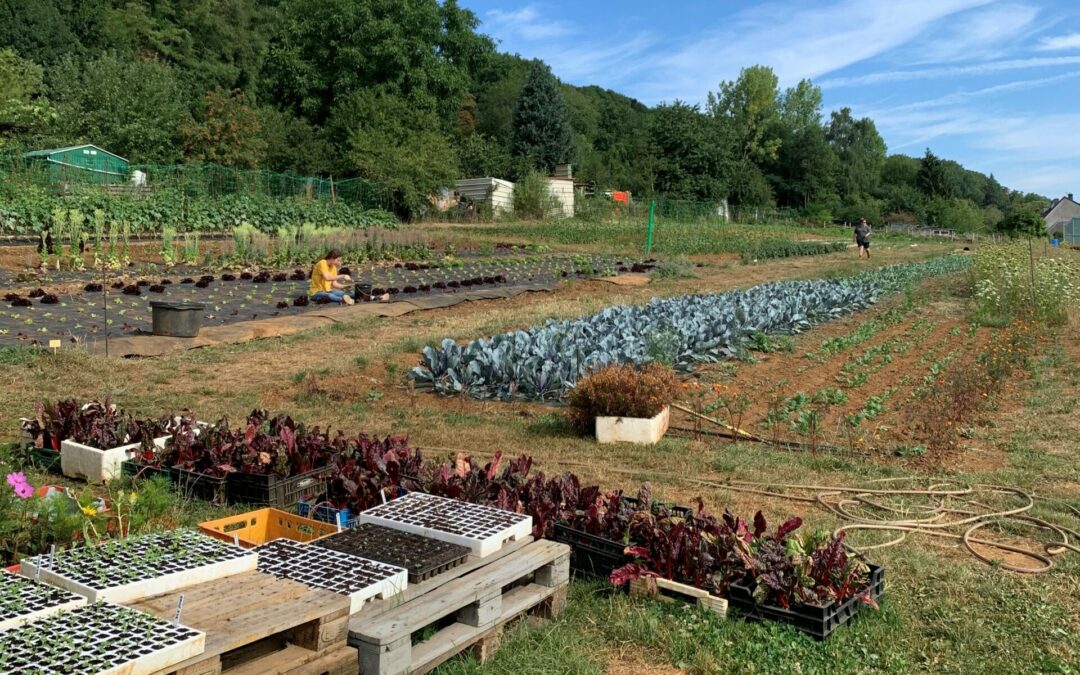When I was first introduced to the FUSILLI project at the University of Gastronomic Science in Pollenzo, Italy (which collaborates with the Turin municipality), I knew that I wanted to contribute to the project with the city of Differdange. I spotted a small green pin on Differdange one day during lecture as our professor presented the FUSILLI project, talking about Turin.
Differdange is a city to which I am particularly attached, having been an expat there. I was surprised as I was excited to be in that bridge between Italy and Luxembourg again. The city is the centre of many dynamic projects, creative activities, and holds much excitement for the future. Starting the internship, and learning little by little all that revolves around the FUSILLI project in Differdange, my initial excitement to collaborate in such a project was rewarded by the satisfaction I am receiving and all that I am learning. I wanted to share a few of the stories I have been part of since the start of this experience.
The vegetable garden of Differdange
During one of my internship days, I had the opportunity to work at Differdange’s municipal vegetable garden. 0.5 hectares of land are cultivated to provide vegetables for the municipality’s school canteens, which feed 1 500 children. Everything is produced organically, manually, and with the passion of our vegetable gardener, Sabrina Zumbo.
Everything is delivered to the canteens in bulk, without packaging or plastic. The vegetables are only en route for a few kilometres with an electric van. There is human contact during the exchange since gardener and chef have the chance to talk and exchange tips, advice, and new recipes for those much-loved vegetables. There is something extraordinary about the gardener meeting the chef: Vegetables that leave the garden become ingredients for seasonal, local, and tasty dishes.
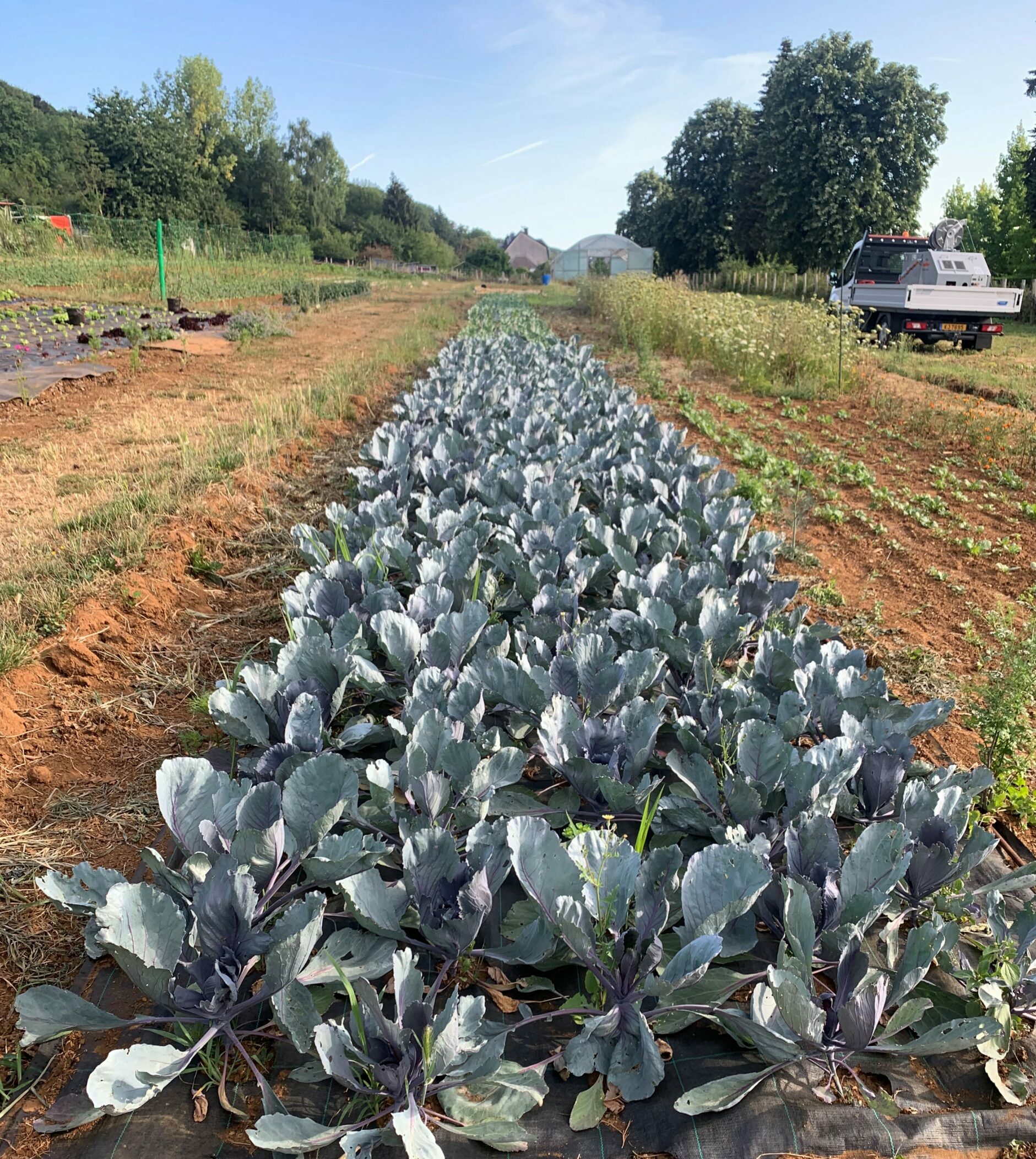
Photo by Francesca Savo
It is possible to feel the human dimension in this exchange and understand that the efforts made in the field are all worthwhile, as all the 1 500 children will have the chance to eat these vegetables.
I think this model is extremely pioneering because it puts the importance of the land, the seasons, and biodiversity into each dish that will be served. The pupils will also have the opportunity (as part of the FUSILLI project) to go out into the field to harvest, sow, and practically learn the journey of the vegetables from seed to plate.
Zero-waste fruits
One day we were at the producers’ market in Differdange, where we held an awareness-raising activity for the citizens of the municipality.
Our project manager, Carla, had received a phone call a few days earlier from the chef of the school canteens informing us that they had a surplus of vegetables and fruits that would not be used due to the collective holiday.
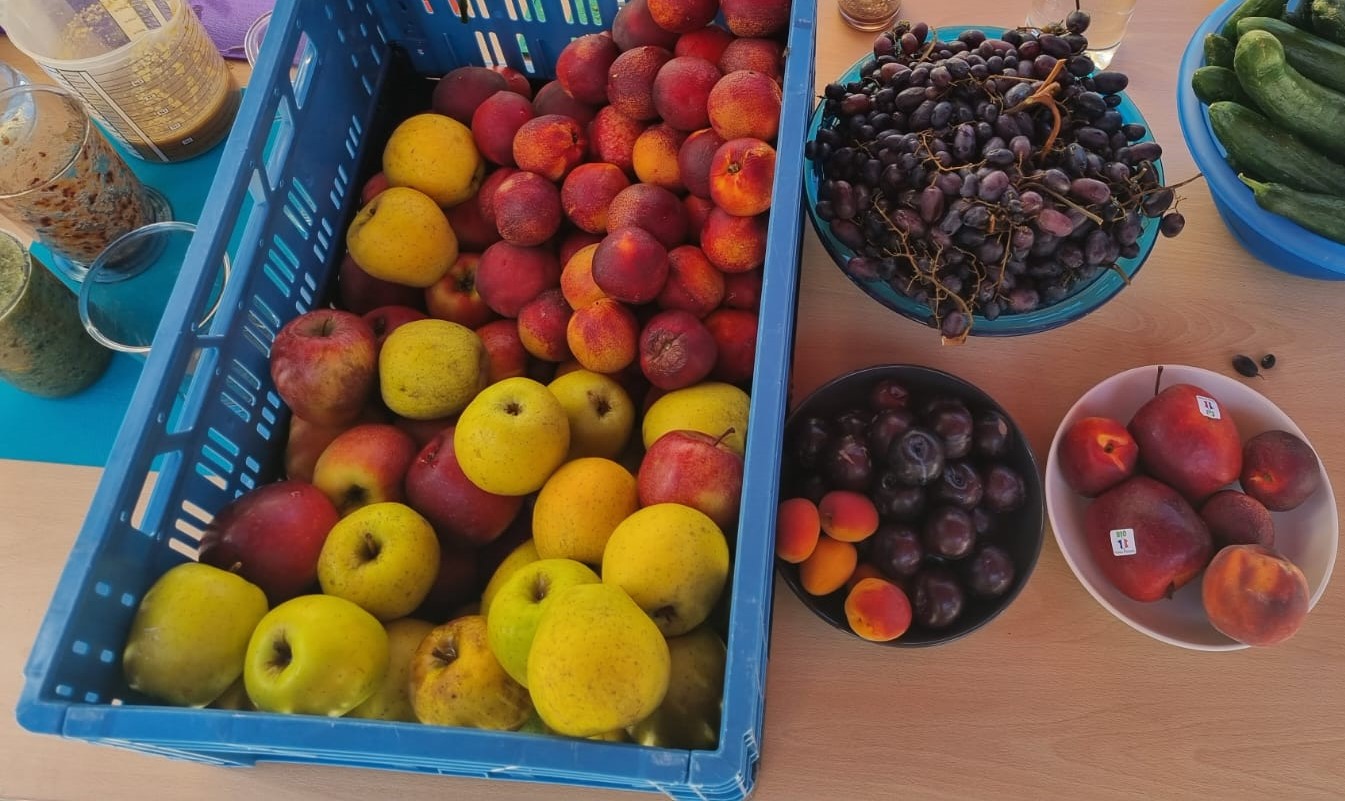
Photo by TNT ASBL
Time was short, but we knew we could not waste what was left, and we could not waste the opportunity to get in touch with citizens. After a general brainstorm, we decided to go for something entirely created from those fruits and vegetables: fruit juices ─ free, refreshing, and zero food-waste.
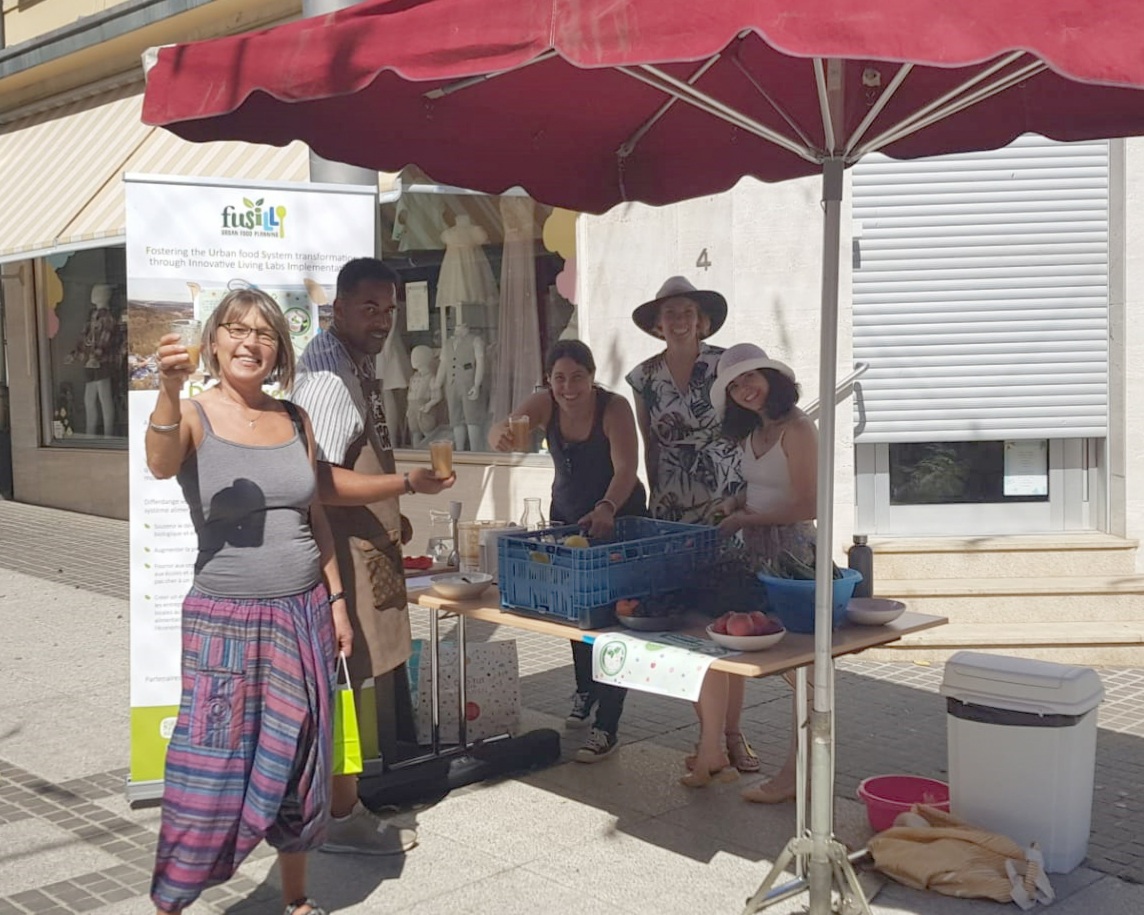
Photo by TNT ASBL
The chance for conversation
Having chosen glasses to serve our juice, people were ”required” to sip their juice there with us. Here comes the surprise:
Everyone asked many questions about the production in Differdange. Children who normally eat at school canteens were curious to try a juice made from ingredients donated by their schools and grandparents were curious about which fruit we used ─ to recreate the recipe at home.
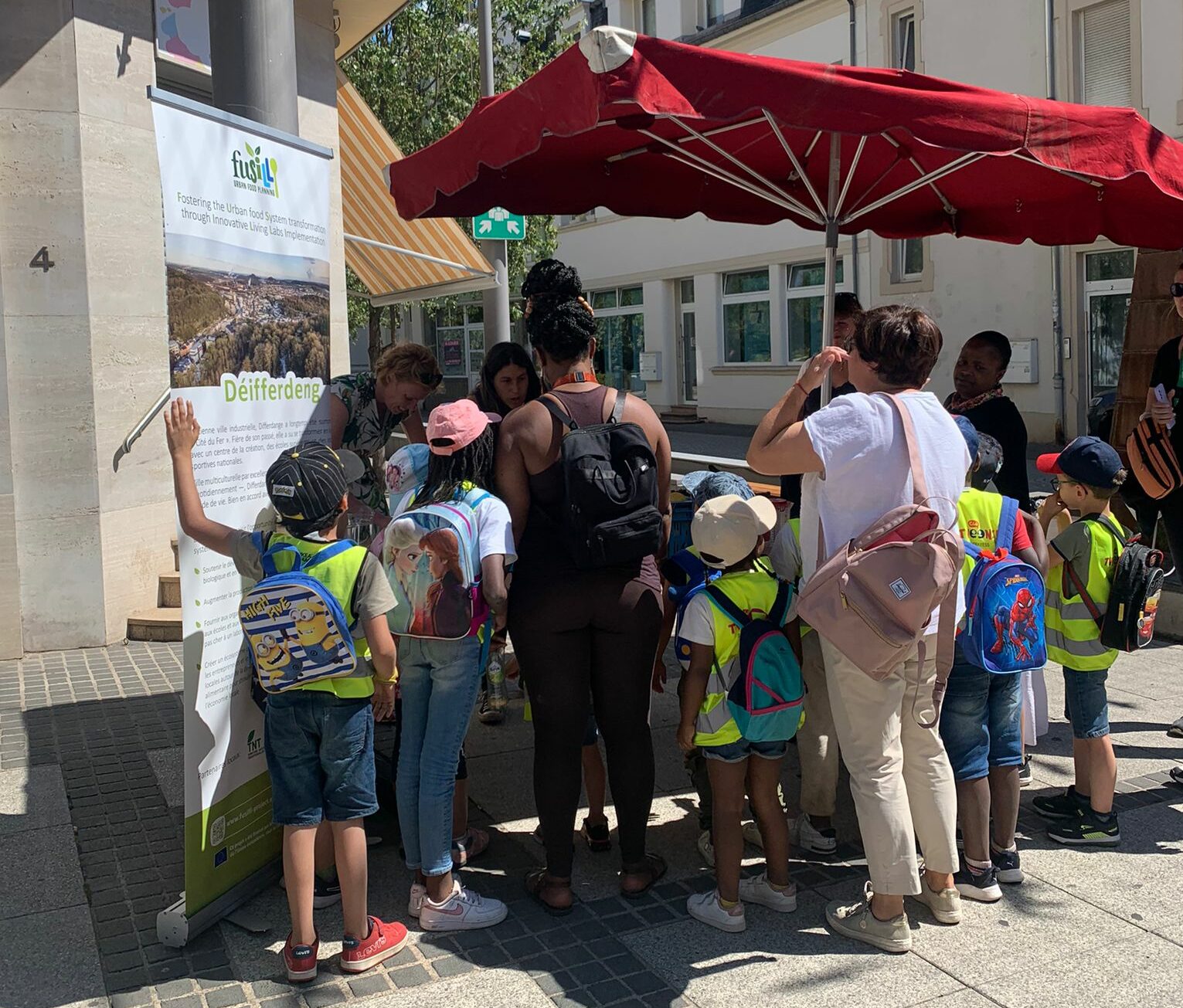
Photo by TNT ASBL, Differdange
People showed interest, enthusiasm, and engagement towards the whole FUSILLI project. They asked questions about the future activities, making us understand that we were bringing food consciousness, thanks to that little activity. We received plenty of positive feedback from citizens and quite a big number of them left their email addresses to stay up to date with new activities coming up.
The people’s enthusiasm and interest in discussion while tasting the zero-waste juices, was gratifying and gave us a great sign of hope. It made us aware that there is room in people’s needs for a better, sustainable, and inclusive food system.
The key lies in the everyday
The action itself was simple, but I believe that simplicity can help more than we think. Simplicity can be included in the daily routines, it can succeed in raising the awareness of even the most reluctant, and it can shake up fixed and muddled habits. We need circularity in food, as in the rest of what surrounds us. With small everyday actions, we can learn to make our daily practices circular and later harvest the benefits of those good practices.
